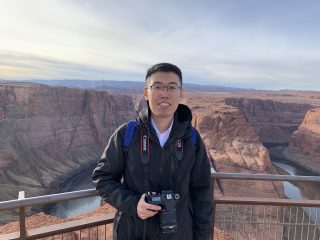Next week, we have the great pleasure to welcome Jinwei Zhang to our lab for a presentation on his latest research.
Title: Probabilistic Dipole Inversion for Adaptive Quantitative Susceptibility Mapping
Date: May 11th, 16h CET
Location: https://fau.zoom.us/j/64677481134
Abstract: A learning-based posterior distribution estimation method, Probabilistic Dipole Inversion (PDI), is proposed to solve the quantitative susceptibility mapping (QSM) inverse problem in MRI with uncertainty estimation. In PDI, a deep convolutional neural network (CNN) is used to represent the multivariate Gaussian distribution as the approximate posterior distribution of susceptibility given the input measured field. Such CNN is first trained on healthy subjects via posterior density estimation, where the training dataset contains samples from the true posterior distribution. Domain adaptations are then deployed on patient datasets with new pathologies not included in pre-training, where PDI updates the pre-trained CNN’s weights in an unsupervised fashion by minimizing the Kullback-Leibler divergence between the approximate posterior distribution represented by CNN and the true posterior distribution from the likelihood distribution of a known physical model and pre-defined prior distribution. Based on our experiments, PDI provides additional uncertainty estimation compared to the conventional MAP approach, while addressing the potential issue of the pre-trained CNN when test data deviates from training.
Short Bio: Jinwei Zhang is a Ph.D. student in Cornell MRI research lab, under the supervision of Yi Wang. The current focus of his work is to develop AI-based methods to optimize the sampling and reconstruction process of MRI, especially quantitative susceptibility mapping with multi-echo image acquisition and reconstruction. Prior to Cornell, he obtained a B.S. in physics from Sun-Yat-sen university.

